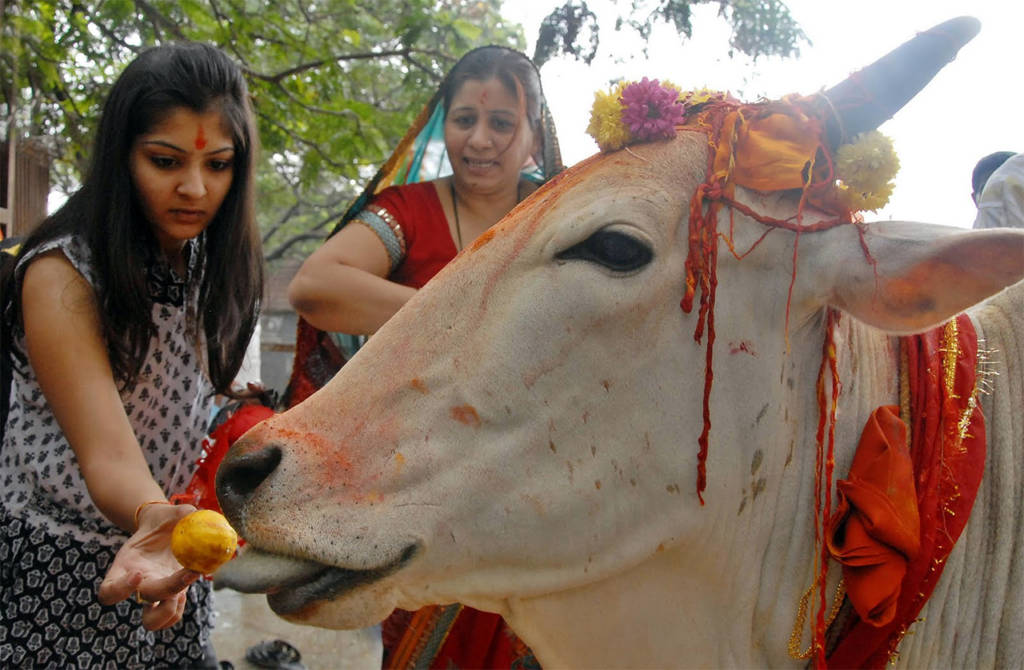Since time immemorial, India has been a Hindu country, even after centuries of Islamic and Christian rule, it remained a Hindu country. Hindu civilization is the oldest surviving civilization in the world. Christianity wiped out pagan religious practices and culture from Europe, America, and Australia. Islam wiped out some of the oldest religions like Zoroastrian and Arabic paganism. But Hinduism has survived after almost 1,000 years of Christian and Muslim rule.
A few days ago, addressing a meeting of Akhil Bhartiya Karyakari Mandal, RSS chief Mohan Bhagwat said, “We are a Hindu Rashtra, but at the same time let me clarify Hinduism is not some form of worship or some language. Hinduism is the name of a cultural legacy which is the legacy of all people living in India. When the Jews were being chased away and looking for refuge, India was the only country that sheltered them. The religion of Parsis is safe only in India. The most happy Muslims in the world would be found in India.”
All India Majlis-e-Ittehadul Muslimeen (AIMIM) chief and MP from Hyderabad- Asaduddin Owaisi reacted to his statement and tweeted, “Bhagwat cannot erase my history in India by renaming it Hindu. It won’t work. He cannot insist that our cultures, faiths, creeds & individual identities all be subsumed by Hinduism. Bharat na kabhi Hindu Rashtra tha, na hai, na hi kabhi banega Inshallah.”
The conservative Islamic leader has always denied that India is Hindu Rashtra but the Supreme Court of India itself declared in 1995 that, “Ordinarily, Hindutva is understood as a way of life or a state of mind” in the country.
The people living under a particular landscape were defined as Hindus. This geographical landscape extended from the Great Himalayas in North to Indian Ocean in South, Indus River in West to Bay of Bengal in the east. What is called the Indian subcontinent today, used to be referred to as land of Hindus in ancient times. The Arabs, Europeans, and Chinese used the same definition of India in ancient times.
Persians first used the term ‘Hindustan’ to refer to the Indian subcontinent. Everyone living in the subcontinent was referred to as Hindu, irrespective of his/her religious identity. Mauritian or Surinamese people with origins in South Asia, describe themselves as Hindustani.
Most Muslims and Christian of the country have Hindu forefathers. The followers of the non Dharmic religion also practice the caste system. Historically, Islam in India has been very different from that Arabic world. The majority of Muslims in the country have Hindu ancestors, and they follow Hindu customs.
Many communities among Muslims are known by their caste affiliation like Khoja Muslim, Memon Muslim, and others. The number of Muslims whose ancestors were from foreign land does not constitute even double-digit percentage population of the community.
The Muslim community of the country practice caste system and even untouchability, which is traditionally seen as a practice associated with Hindus. A research on untouchability among Muslims in the state of UP, published in Economic and Political Weekly, concluded, “The precarious condition of Dalit Muslims due to the actions of the state is further complicated by the position taken by the conservative elite of their community. Every attempt of this marginalised group for recognition is countered by conservative Muslims citing certain Quranic verses.”
The theory that Christianity is casteless was challenged in Arundhati Roy’s debut novel, “The God of Small Things” which was based on the prevailing conditions of converts in Kerala, which is also the setting where recent murder of a Dalit Christian youth at the hands of his Syrian Christian wife’s family took place.
Therefore, the people living geographical entity of Indian subcontinent are Hindus. Pakistan tried to whitewash Hindu identity in Punjab and Sindh by imposing Urdu and Islam, and today the country suffers from an ‘identity crisis’. It lost East Pakistan because the military dictators from Pakistan tried to impose Urdu and Islamic culture over Bengali language and culture.
Vinayak Savarkar, the ideologue who popularized the term Hindutva and theorized the concept of Hindu nationalism in his book Essentials Of Hindutva, 1923, wrote, “We Hindus are bound together not only by the tie of the love we bear to a common fatherland and by the common blood that courses through our veins and keeps our hearts throbbing and our affections warm, but also by the tie of the common homage we pay to our great civilization – our Hindu culture.” Because Hindu Rashtra is defined as a geographical entity, it will remain a Hindu country as long as this geography survives.
